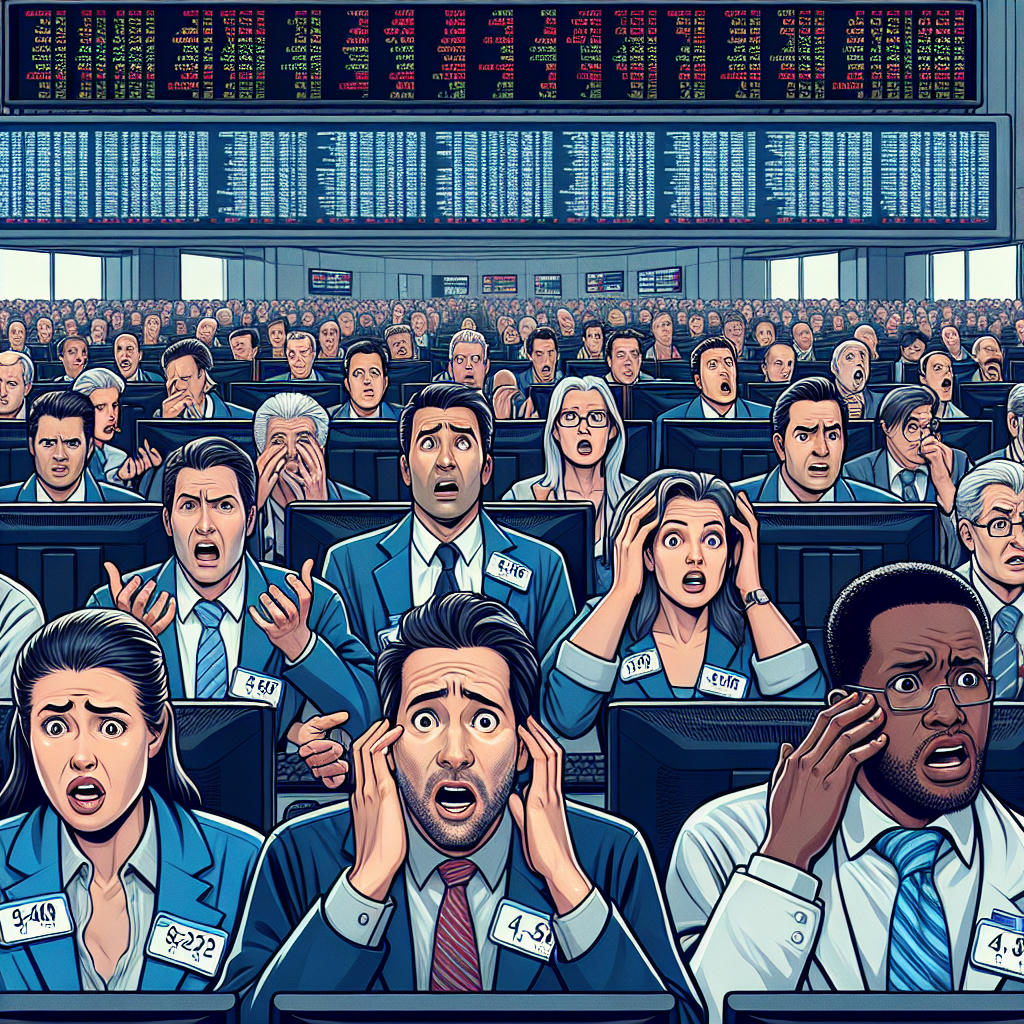In what might be deemed as one of the financal sector's most poorly hedged bets, hedge funds worldwide sat at the edge of their high-backed, ergonomically designed chairs, waiting for the stock market to make its move post-Jerome Powell’s much-anticipated speech. The goal was simple: profit from the volatility that usually ensues after any major financial announcement. However, this time, they were met with nothing but the sound of their own hopes deflating, as the speech went on to. . .be remarkably understated—featuring neither technical difficulties nor unscripted environmentalist cameo appearances.
Typically, financial markets thrive on the unexpected—be it an unintentional slip of the tongue about future interest rates or a sudden appearance by climate protesters wielding signs that read 'Invest in our planet, not in greed.' These events can send stocks soaring or plummeting, creating a playground for investors looking to capitalize on the rapid movements. Yet, Powell's latest discourse was akin to a lullaby, lulling the market into a state of unprecedented tranquility.
Hedge funds, accustomed to riding the waves of uncertainty, found themselves marooned on the island of stability. Analysts were left scratching their heads, wondering how their sophisticated algorithms, capable of predicting market movements based on the slightest whisper of change, could not foresee this eventuality. In the aftermath, boardrooms turned into somber conference calls, as fund managers grappled with explaining to investors why their latest gamble yielded no more excitement than watching paint dry.
Internet forums and social media platforms were abuzz with reactions ranging from schadenfreude to outright disbelief. Memes proliferated, depicting hedge fund managers as fortune tellers staring into crystal balls that reflected only their own confusion. Amidst the online chaos, a popular financial influencer commented, 'It seems the only thing Powell moved today was the air in the room,' cueing an onslaught of likes and retweets that captured the mood of the day.
In an ironic twist, the only sector to witness any excitement from Powell's address was the manufacturers of stress balls, which reported a sudden spike in sales following the speech. Coincidentally, these are the same stress balls often branded with corporate logos and handed out as 'networking' gifts at financial conferences. Perhaps it's time for hedge funds to consider diversifying their portfolios into the stress relief sector, or maybe just investing in a more reliable fortune-telling apparatus.
As the dust settles, the financial world is left to ponder the implications of this unexpected stability. Could it be that the market has become immune to the sensationalism once triggered by the theatrics of financial speeches? Or is it simply biding its time, waiting for the next series of serendipitous microphone malfunctions to unleash its fury? In the realm of high stakes finance, one thing is for certain: not all that glitters is gold, and not every speech shakes the stocks.

